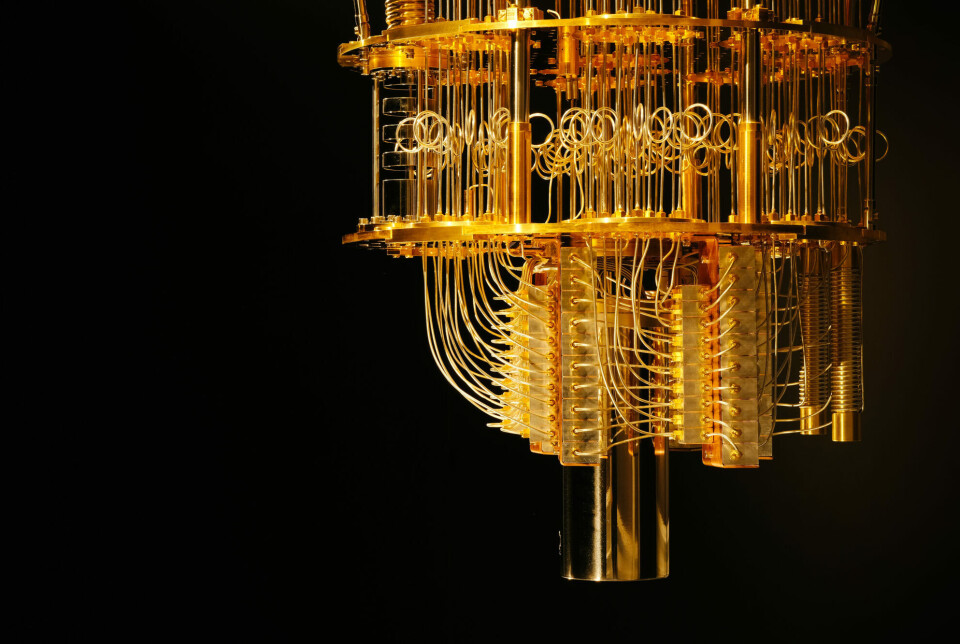THIS CONTENT IS BROUGHT TO YOU BY NTNU Norwegian University of Science and Technology - read more
Voting from your sofa is secure enough. But will it be allowed?
A new electronic voting system can withstand attacks from quantum computers. This means digital elections can be conducted securely, even in the future.

Norway’s national elections are approaching, and most Norwegians will probably have to visit the polling stations in order to cast their votes this year as well. The reason for this is that despite Norway wanting to become the most digital country in the world, it is still far from conducting fully digital elections.
But new cryptographic techniques will make it safer to hold electronic elections in the future. If politicians support online electronic voting, they can get help from the Norwegian University of Science and Technology (NTNU).
“We've developed a quantum-resistant electronic voting system,” says researcher Tjerand Silde.
The new system ensures that voting with the press of a key remains as secret, reliable, and secure as pen and paper.
Secure, efficient, electronic
Silde and his colleagues have designed a system to keep voting information secret. This system can replace the current technology used.

The researchers have proven that the system is secure, even against the super-fast quantum computers that are likely just around the corner. In theory, these computers will be able to crack current cryptography, allowing information about who voted for what to be misused in the future.
Replacing the current systems is a big job.
“But now that process can actually begin, based on our contributions. It's possible to build a new system that ensures we can also vote electronically in a secure way in the future,” says Silde.
Threats from quantum computers
Switzerland, Estonia, France, and Australia have already introduced digital elections. Silde says these countries have robust systems that ensure votes cannot be traced back to voters.
These countries are making concrete efforts to preserve trust. Large operations are underway to ensure that everything works as it should, and to guarantee that the results are accurate.
The big challenge is quantum computers, which pose a serious threat to digital elections.
“In a few years, everyone will have to switch to quantum-resistant cryptography. Our research lays the foundation for enabling e-voting in the future. Our system is secure, although it is less efficient than the current systems. But the conventional systems will be insecure in the future anyway,” says Silde.
Huge advantages – and disadvantages
Companies like IBM, Google, and Microsoft are developing quantum computers. OsloMet in Norway also has two of them. These machines can solve specific mathematical problems in a very short time.
This new technology has the potential to change the world, but it comes with security challenges, and many people are working hard to solve them.
The Norwegian National Security Authority believes there is more than a 50 per cent chance that computers capable of cracking current encryption systems will exist in just 10-15 years.
Governments and criminals are preparing
“This means we need to replace today’s systems with new cryptography. It must have the same properties, but also protect against new attacks. The danger is that if the encrypted votes are stored today, it may be possible to decrypt them in the future," the researcher says.
Both cybercriminals and state actors are already preparing for this development by storing encrypted data traffic that they expect to be able to decrypt later.
Additionally, if a large quantum computer is available when an election takes place, an attacker could tamper with the results to influence the outcome.

Solving major challenges
The researchers at NTNU believe their system resolves some major challenges:
- It can confirm that only people with the right to vote cast their vote.
- It ensures that cast votes cannot be linked to the voters’ identities.
- It ensures that the votes can be counted and checked, and that the result is correct.
Electronically mixed votes
All of this is done using an electronic mixer.
“It mixes the votes so they can’t be traced back to the person who cast them. At the same time, we make sure that the mixer doesn't replace the votes with other information. We've designed a system that makes it possible to verify and prove that everything was done properly,” says Silde.
The result is that electronic elections can be conducted in the same way as today, and without anyone with a quantum computer being able to crack the encryption and learn anything about the votes beyond the actual election result.
“The system can still be improved, but we're the first to show that this is possible and that it's effective enough to be implemented,” he says.
Is paper still safest?
Electronic elections have already been carried out in Norway. Both in church elections and referendums where residents advised politicians on the merging of counties and municipalities. In 2011 and 2013, pilot projects were conducted in some municipalities and counties where electronic voting was included in the official election.
But politicians did not want to pursue this form of voting further. In 2024, a group of experts was asked to assess the impact of AI on ensuring trust in continued democratic elections in Norway. One recommendation among many was to keep paper ballots to ensure they can be verified afterwards.
Increased participation and cost savings
Both Switzerland and Estonia have reported increased voter turnout and cost savings by conducting purely electronic elections.
But Silde says there’s more to be done before electronic voting comes to Norway.
“This depends on whether the system can be trusted or not. There tends to be a focus on the disadvantages when choosing not to use electronic voting systems. It's natural that we, as one of the world’s most digital societies, consider whether this will be beneficial for us in the future,” he says.
Fully digital elections in Norway are unlikely
Once the system is up and running, conducting an e-election is both cheaper and less challenging. And when it becomes easier to vote, it becomes easier to participate in democratic processes.
Votes can also be counted faster and more easily than today. Still, Silde does not envision Norway switching to fully digital elections.
“Digital voting will be an addition to paper-based voting that can make it cheaper and easier to engage various groups in society,” he says.
References:
Aranha et al. 'Lattice-Based Proof of Shuffle and Applications to Electronic Voting', Cryptographers’ Track at the RSA Conference, 2021. DOI: 10.1007/978-3-030-75539-3_10 (Abstract)
Aranha et al. Verifiable Mix-Nets and Distributed Decryption for Voting from Lattice-Based Assumptions, ACM Conference on Computer and Communications Security, 2023. DOI: 10.1145/3576915.3616683
Hough et al. More Efficient Lattice-Based Electronic Voting from NTRU, IACR Communications in Cryptology, vol. 1, 2025. DOI: 10.62056/a69qudhdj
———
Read the Norwegian version of this article on forskning.no
More content from NTNU:
-
Fish farming is least harmful to the seabed in the north
-
Study: Centralising hospitals has reduced birth mortality
-
Early testing of schoolchildren: “We found absolutely no effect”
-
This determines whether your income level rises or falls
-
Why is nothing being done about the destruction of nature?“We hand over the data, but then it stops there"
-
Researchers now know more about why quick clay is so unstable





































